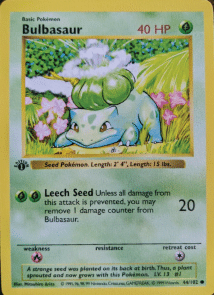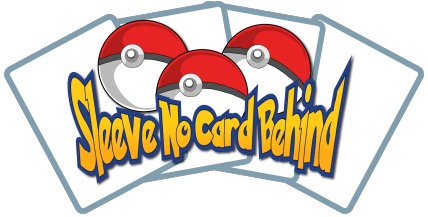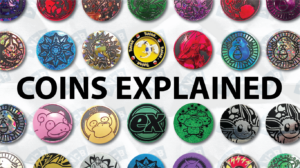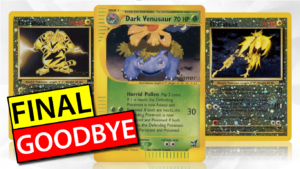Why Pokemon Cards Get Banned in School (and why it's dumb)
I can specifically recall the day back in 2001 when Pokémon cards were banned from my school playground. I was devastated, as Pokémon was the soul passion in my young life. Back then I didn’t understand why the trading cards were banned, in fact, I thought it was wrong of the principal to do so. As it turns out, I was kind of right. In this article, I outline why trading cards often get banned from elementary schools and why it actually isn’t the best course of action to take.
Pokémon cards tend to get banned from playgrounds due to disputes that break out over stolen cards, disagreements, and manipulative trades. When trading cards are banned from the classroom, it is due to the distraction that they tend to cause, preventing students from learning.
3 Reasons Why Pokemon Cards Get Banned
3. It’s a Distraction
Pokémon cards are marketed primarily to children who are in grade school. This is obviously an important time for kids to learn Math, English, and other subjects. Trading cards on the playground is one thing, but once they are in the classroom, they instantly distract students from learning.
It’s especially difficult to separate recess from learning time when kids can fit the distraction in their pockets. Pokémon cards are small enough that you can stuff a deck of cards into your pocket and bring them into the classroom or on the bus without teachers knowing.
2. Stolen Property
There are thousands upon thousands of trading cards. Many of which are valuable. Remember, most cards are worth no more than a penny, but many are worth a lot more than that. People have built entire businesses around collectible trading cards, bringing in monthly revenue from just these simple pieces of cardboard.

What I’m getting at is, that these aren’t Lego pieces or cheap toys. If a child chooses to steal someone else’s cards, it is considered serious theft. Furthermore, it’s entirely common for mistakes, misunderstandings, and accidents to happen. If a $500 Pokémon card goes missing, it will cause a stir-up and likely get teachers and parents involved.
It’s true, kids shouldn’t be bringing expensive cards to school. But it happens, and from a teacher’s perspective, it is probably easier if no cards were brought to school. This is especially true when a child can simply steal a card, insert it into his own collection, and claim they brought them from home.
1. Fights Break Out
Everything already outlined such as disagreements, stolen property, and misunderstandings can lead to playground fights. It’s not uncommon that kids end up in a tussle every now and then but Pokémon cards just accelerate the process.
When a child brings a toy to school, it should be relatively easy to keep track of. But when they bring a deck box or binder full of Pokémon cards, they are responsible for up to hundreds of cards. With multiple kids bringing hundreds of cards to school, fights break out over cards every day.
It’s not entirely uncommon to find older kids manipulating younger ones in order to obtain their cards. Sometimes one child will “scam” another into making an unfair trade. This would obviously result in an upset child and be classified as bullying.
Why Pokémon Cards Shouldn’t Be Banned
In an age when children are exposed to so much electronics, some even owning their own smartphones and iPads, Pokémon cards are kind of a breath of fresh air. After all, they are just cardboard.
But it’s more than that. Pokémon cards have text all over them- they reinforce reading skills. If you want to play the trading card game, you’ll need a grasp of reading comprehension, strategy, math, and, of course, respect for one’s opponent. Pokémon cards also reinforce good, normal social interaction. These are skills kids don’t learn from Youtube and Instagram.
It’s not only kids who collect Pokémon cards, as many adults indulge in the hobby as well. However, it is usually from a different perspective. Some Pokémon cards can be worth a lot, and as collector’s items, they are often bought and sold at various prices. There is a Pokémon card market that is hot just like the stock market.
Parents will sometimes spend time with their kids, teaching them basic lessons of economics and trading, using Pokémon card market prices as relatable examples. If a kid knows what to look for, it is very possible that they could make educated trades on the playground in order to obtain cards that will likely increase in value over time. This is a great way to introduce long-term investing at a young age. Of course, this isn’t feasible if Pokémon cards are outright banned from school.
To be fair, education comes first. If Pokémon cards are disrupting the flow of teaching in the classroom, they shouldn’t be allowed.
How Schools Should Compromise
My elementary school back in the early 2000s banned Pokémon cards right across the school. If you got caught on the property with trading cards, you’d be sent straight to the principal’s office with confiscation of your card binder to boot.
What this school should have done is allow the cards on recess breaks but confiscate them during classroom hours. Schools sometimes place bans on certain toys, but a toy with educational value like Pokémon cards has a place and should be allowed at least in the children’s free time.
Another option that has been implicated in some schools is having one or two days of the week designated Pokémon card days, where children are allowed to bring their cards.
Final Thoughts
It’s not hard to sympathize with the teachers. Managing a bunch of children, each with many cards of their own must be a nightmare. But Pokémon cards do have a unique educational property to them, and there’s no reason it should be taken away as a learning tool. After all, it is easiest to learn when one is truly interested in something.




